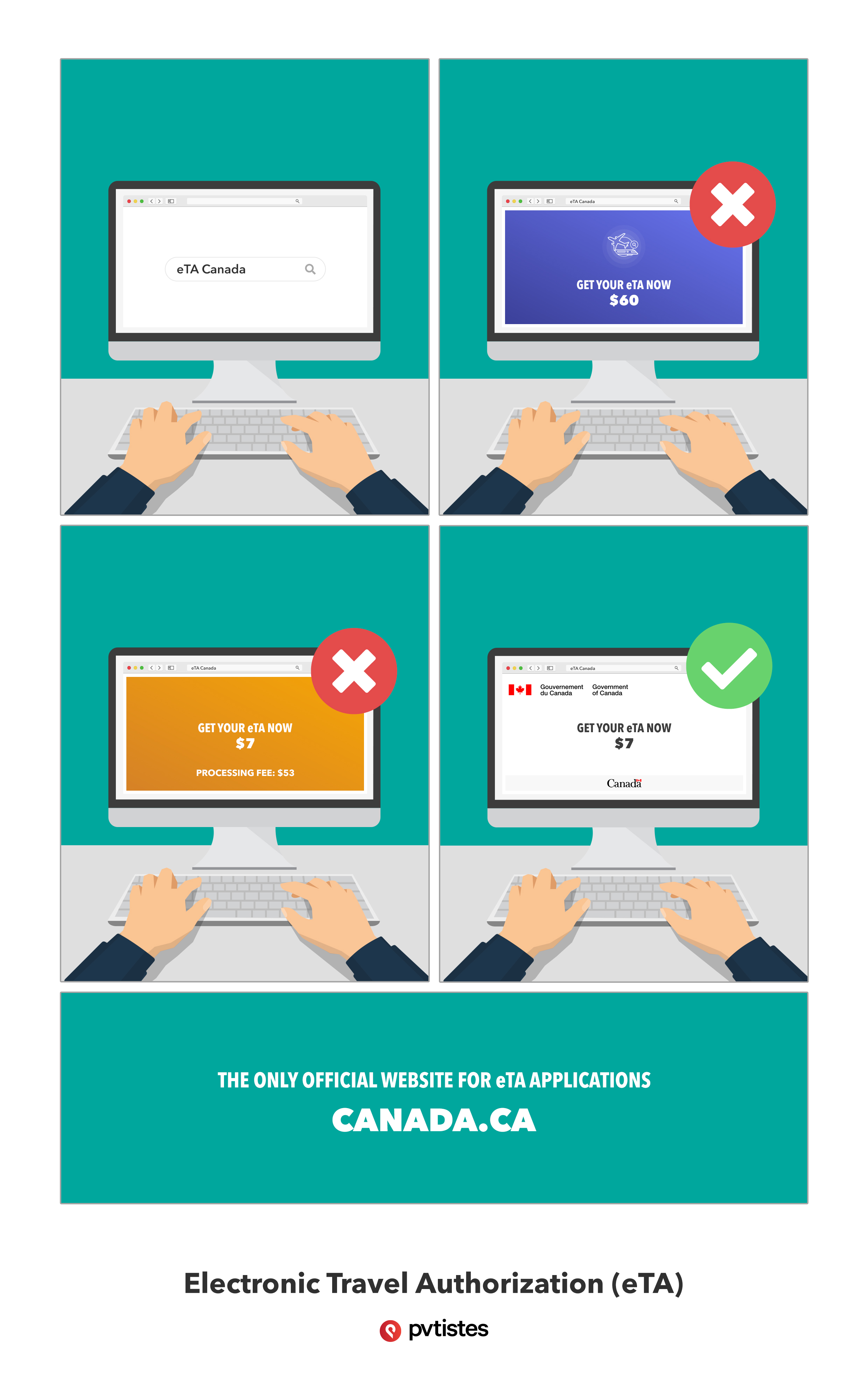Canada is a popular destination. Around the world, plenty of people are looking to travel, intern, study, work or settle in Canada—and scammers know that well.
Read on to avoid some common scams—Electronic Travel Authorization (eTA) scams and permanent residence or work permit scams. (All amounts are in Canadian dollars.)
How do people get scammed?
It usually starts with a simple Google search using keywords like “eTA Canada,” “Working Holiday Canada” or “immigrating to Canada.” People click on the top results and, often enough, they point to scammy, unofficial websites. They usually feature Canadian flags, some legalese and semi-official wording. They collect visitor information and follow up by email or phone.
Scammers have one goal—to get money from you. For instance, they will charge extra fees for the eTA, which only costs $7. Work permit, study permit and permanent residence scams are even more deceptive. Scammers often promise to fast track your application or claim there are extra fees to pay. It can get nasty—occasionally, people who decline to send money receive threats. Remember that scammers do not work with the Government of Canada and can’t deport, arrest or ban anyone from going to Canada.
Dodge eTA scams
All travellers going to Canada (i.e. tourists and temporary residents with a work or study permit) need an eTA:
- Visitors must apply online at Canada.ca. The fee is $7.
- Temporary residents (e.g. Working Holiday, Young Professionals, International Co-op) also need an eTA but it is issued at the same time as the work permit.* You do not need to apply separately or pay an additional fee.
- Permanent residents do not need an eTA as long as they travel with a valid Permanent Resident Card.
*Important: Your eTA is linked to the passport you used to apply for your work, study or internship permit. If you get a new passport, you will have to apply for a new Canadian eTA.
Your eTA is valid for up to five years or until the passport expires, whichever comes first. 
Dodge Working Holiday permit scams
Remember:
- Submitting your profile to the pool is completely free. Read our Step-by-step guide to IEC Canada applications — Working Holiday, Young Professionals and International Co-op permits for more information. If you’re being charged to enter the pools, you are on a scam website!
- It’s only if you get an Invitation to Apply (ITA), accept the ITA and submit your IEC application that you will have to pay the fee. This will be $357 for a Working Holiday permit ($257 for a Young Professionals or International Co-op permit).
- The Government of Canada will never call you about your application or threaten you by phone or email.
Dodge immigration scams
Whether you’re applying for permanent residence in Canada or an IEC permit, watch out for general immigration scams.
Plenty of websites look official but are deceptive or just plain scammy.
If you do choose to hire an immigration lawyer, consultant or representative, learn about what they can do (hint—they can’t fast track your application!) and make sure the person is licensed to represent immigrants or to give advice. For more info, read Using an immigration and citizenship representative.
Note that:
- You do not have to hire an immigration lawyer, consultant, representative, etc. to apply for a work permit or permanent residence. All the information you need to apply is available for free on Canada.ca.
- It’s completely useless to hire an immigration lawyer for a Working Holiday permit application—it definitely won’t improve your chances to get an ITA and a lawyer won’t be able to bypass the lottery system.
Take the time to read Internet, email and telephone scams to learn about the latest scams in Canada. You can also read about some general Working Holiday scams in Common scams to avoid during your working holiday abroad.












 Français
Français English
English





0 comments
{{like.username}}
Loading...
Load more